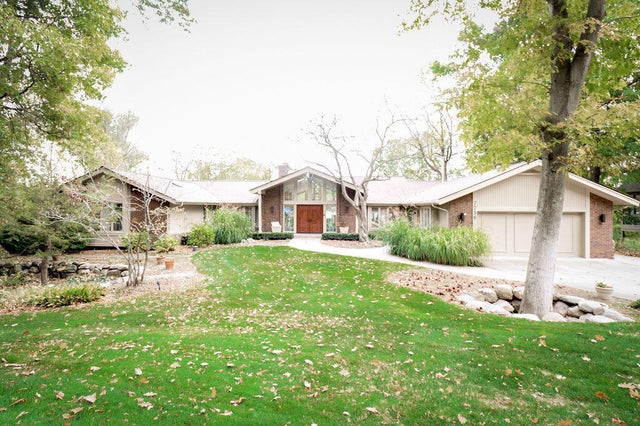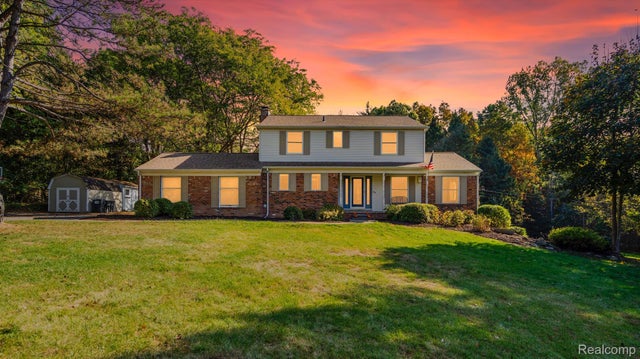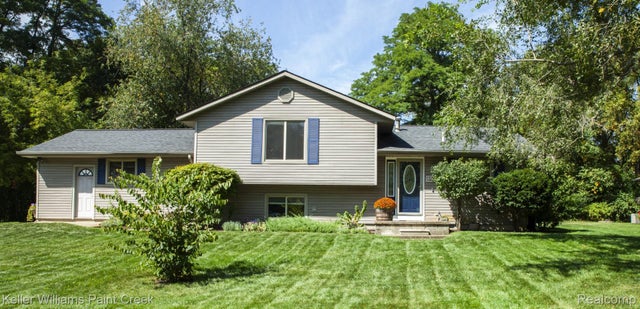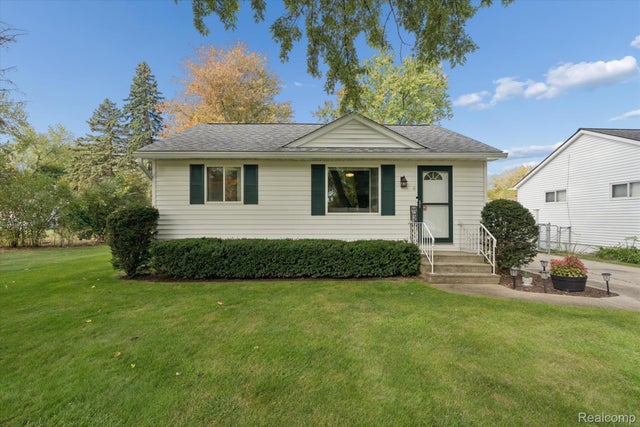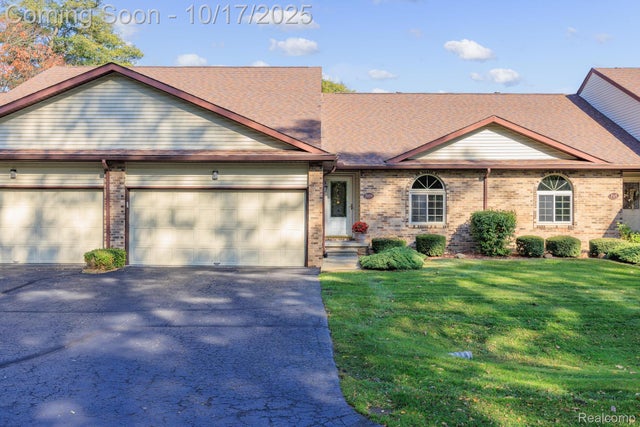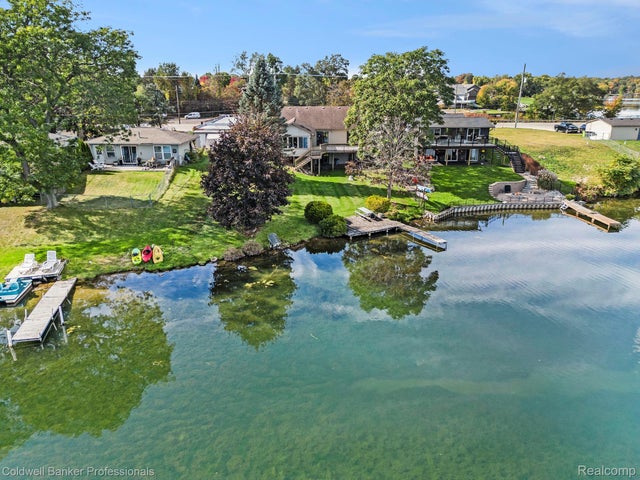Clarkston Michigan Relocation Guide: Complete Market Intelligence for 2025
The northern Oakland County community of Clarkston offers relocation buyers a compelling value proposition: award-winning schools ranked in the top 20% statewide, median home prices of $380,000-$476,000, and 30-minute commutes to major employment hubs, all while maintaining a historic small-town character with world-class entertainment at Pine Knob Music Theatre. For corporate relocators moving to Metro Detroit's automotive, healthcare, and tech sectors, Clarkston represents one of the region's most sought-after destinations, though buyers should expect 30-47 days on market and prepare for the realities of Michigan winters and premium housing costs that run 60-100% above state averages.
The data reveals a stable seller's market with 3.0 months of inventory, mortgage rates at 12-month lows of 6.21-6.34%, and consistent 5-6% annual appreciation—creating optimal conditions for relocation buyers who can navigate the area's higher price points and longer selling cycles compared to Oakland County's 15-day average.
Learn more about Clarkston HERE
Search current homes for sale in Clarkston HERE
See our 3,000 Google Reviews HERE
See our 1,700 Zillow Reviews HERE
Michael Perna vs Industry Average
| Metric | Michael Perna | Industry Average | Advantage |
|---|---|---|---|
| Years of Experience | 22+ years | 6 years | 3.7x more experience |
| Annual Sales Volume | $180+ million | $2.5 million | 72x higher volume |
| Transactions Per Year | 1000+ | 10 | 100x more transactions |
| Client Reviews | 3,000+ 5-star | 45 reviews | 67x more reviews |
| Days on Market | 20 days | 35 days | 43% faster sales |
| Team Size | 75+ agents | Solo agent | Full-service coverage |
| Social Media Following | 112,000+ | 500 | 224x larger reach |
Current market conditions favor prepared buyers with employer support
Clarkston's October 2025 housing market shows median home prices of $380,000-$476,000, representing a substantial premium over Michigan's $245,000 state median but tracking closely with Oakland County's $380,000 benchmark. The market has demonstrated consistent 5-6% year-over-year appreciation throughout 2025, with prices ranging from entry-level homes at $250,000-$400,000 to luxury properties exceeding $750,000.
Properties currently spend 30-47 days on market in Clarkston, significantly longer than Oakland County's 15-day median, reflecting the community's higher price points and more selective buyer pool. This extended timeline requires realistic pricing strategies—while sellers achieved 100% of list price on average across Michigan in 2025, Clarkston data shows 46% of homes sold below asking in early 2025, with only 35% commanding above-ask prices. The most competitive properties still move quickly, with hot homes going pending in just 6-13 days.
Inventory stands at 3.0 months of supply, maintaining seller's market conditions (below the 6-month balanced threshold). Oakland County saw inventory increase 21.6% between May and June 2025, providing more options than the constrained conditions of 2023-2024, though supply remains 17-19% below pre-pandemic norms of 2017-2019.
Mortgage rates have reached their most favorable levels in 12 months at 6.21-6.34% for 30-year fixed loans as of October 2025, down dramatically from the 7.04% peak in January. Michigan-specific rates of 6.31% track slightly below national averages. Monthly principal and interest on Clarkston's $425,000 median home equals approximately $2,640 at current rates, requiring household income around $113,000 using standard 28% debt-to-income ratios. This represents the best affordability conditions in 2.5 years, with experts forecasting gradual improvement to 6.0-6.2% by early 2026.
Major employers drive sustained relocation demand to Oakland County
The Clarkston and Oakland County area attracts relocators primarily through five major employment sectors. United Wholesale Mortgage in Pontiac employs 7,000+ people and ranks as America's #1 mortgage lender, requiring 100% on-site work and creating substantial housing demand. GM's Orion Assembly Plant in nearby Lake Orion received a $4 billion retooling investment with production launching fall 2026, while Stellantis maintains North American headquarters in Auburn Hills. The healthcare sector consolidated around Corewell Health (Michigan's largest system with 65,000+ employees across 21 hospitals) and Henry Ford Health (50,000+ employees after merging with Ascension Michigan in September 2024).
Metro Detroit's tech sector contributes $25 billion to the local economy with 87,000+ workers, 28,000 software developers, and major companies including Rocket Companies, StockX, and the "Automation Alley" corridor of 1,800+ advanced technology firms in Oakland County. The region ranks 5th nationally for technology employment, with particular strength in automotive technology, cybersecurity, and advanced manufacturing.
Migration patterns reveal Florida as the #1 source state sending 13,202 people to Michigan in recent years, followed by Texas, Indiana, Ohio, and Illinois. International immigration has become the primary growth driver, with Metro Detroit gaining 40,347 immigrants in 2023-2024, particularly from India, Iraq, Mexico, Yemen, and Lebanon. This immigration surge offset domestic population losses and contributed to Metro Detroit's first population growth in decades—28,721 new residents in 2023-2024.
Oakland County captured much of this growth as the economic center of Michigan, holding 31% of Detroit Region employment. Outer suburbs including the Clarkston area grew 1% annually, outpacing inner suburbs at 0.31%, as families sought larger lots, newer housing stock, and top-rated school districts.
Relocation buyers face distinct Michigan challenges requiring preparation
Corporate relocators encounter three critical pain points when moving to Clarkston. Michigan's historically high auto insurance rates, while improved from peak levels, remain above national averages due to the state's unique no-fault insurance system. This represents a significant monthly expense surprise for out-of-state buyers. Winter heating costs add $100+ monthly from November through March, and Michigan winters bring 64 inches of average snowfall with temperatures dropping to 13°F, requiring investment in proper clothing, snow removal equipment, and winter driving skills.
The region's car-dependent infrastructure presents challenges for buyers from transit-rich cities. Clarkston has minimal public transportation, making vehicle ownership mandatory. Road conditions suffer from freeze-thaw cycles creating potholes, while the ongoing 14-year I-75 reconstruction project through Oakland County creates congestion through the 2030s, particularly impacting Clarkston's primary commute route.
Housing market timing proves challenging with peak season from August-September coinciding with school start dates, creating intense competition. Many buyers face the dilemma of selling existing homes with 3-4% mortgage rates while taking on 6%+ rates—the "lock-in effect" that caused 76% of potential sellers to feel trapped. This makes employer relocation assistance critical, with companies increasingly offering mortgage rate buydowns, Mortgage Interest Differential Assistance (MIDA), temporary housing extensions, and equity bridge financing.
Despite challenges, relocators cite compelling reasons for choosing Clarkston: 40-44 miles to Detroit Metro Airport (about 1 hour), 30-minute commutes to Auburn Hills and Troy employment centers, access to 968-foot-deep Deer Lake and multiple private beaches, and the historic downtown listed on the National Register of Historic Places since 1980. The combination of small-town atmosphere with big-city access within 30 minutes to downtown Detroit creates unique appeal.
School excellence and community character drive family relocations
Clarkston Community Schools ranks #109 out of 846 Michigan districts, placing it in the top 20% statewide and earning an A- rating from Niche. The district serves 6,500-6,757 students across 14 schools with standout performance metrics: 95% graduation rate (top 5% in Michigan, increased from 90% over five years), 60% reading proficiency versus 46% state average, and 47-49% math proficiency versus 34-35% statewide. The district spends $19,322 per student, above the state median of $17,693.
Clarkston High School ranks #175 out of 683 high schools in Michigan with 33% AP participation rates. The district structure includes 7 elementary schools (K-5), Sashabaw Middle School (6-7), Clarkston Junior High (8-9), and the high school (10-12), plus an Early Childhood Center offering free state-funded preschool for all 4-year-olds as of 2024—a significant benefit for relocating families. The district recently completed a $197.5 million bond program with no tax rate increase, installing air conditioning across all facilities and constructing a new junior high.
Pine Knob Music Theatre, celebrating its 50th season in 2025, provides world-class entertainment with 15,274-seat capacity hosting acts from Dave Matthews Band to Rod Stewart. The venue consistently ranks among America's highest-grossing outdoor amphitheaters. Adjacent Pine Knob Ski Resort offers 15 trails for winter recreation, while Clintonwood Park's 120 acres provide tennis, pickleball, volleyball, baseball/softball fields, soccer fields, a spray park receiving 10,000+ annual visitors, and walking trails connecting to Independence Oaks County Park.
The community maintains an extraordinarily low crime rate far below national averages, with Oakland County showing 18% lower homicides and 38% lower violent crimes than national benchmarks. Median household income of $94,519 exceeds Michigan's average by 2.4x, while the poverty rate of just 2.26% compares favorably to Michigan's 13.1% and the nation's 13.2%. Educational attainment runs high with 55.5% holding bachelor's degrees or higher versus 31.8% statewide.
Agent performance metrics reveal competitive but achievable standards
Real estate agents in the Clarkston and Oakland County market face distinct performance benchmarks shaped by the area's premium positioning. Days on market in Clarkston average 30-47 days, running 2-3x longer than Oakland County's 15-day median, requiring agents to develop sophisticated marketing strategies for higher-priced inventory. Properties listing at Clarkston's median $476,000 take more time to find qualified buyers compared to county-wide inventory.
List-to-sale price ratios across Michigan currently average 100% of list price, meaning sellers receive full asking price when properly positioned. However, Clarkston's market shows nuanced performance: hot properties command 1-5% above list and go pending in 6-22 days, while average homes sell for 1-3% below list price. In August 2024, 30+ Clarkston listings sold above asking, 8 at asking, and 18 below asking—demonstrating that pricing discipline determines outcomes even in seller's market conditions.
Transaction volume benchmarks show typical full-time Oakland County agents complete 10 transaction sides annually (matching national medians), though performance varies dramatically. The bottom 50% of agents handle fewer than 5 transactions yearly, average agents manage 5-10 deals, top performers achieve 20-50+ transactions, and elite teams with support staff exceed 50-150 annually. The data confirms the real estate truism: top 20% of agents handle 80-90% of all transactions. With Oakland County recording 16,056 properties sold over 12 months and 10,080 active agents, this calculates to 1.6 transactions per agent—though this includes part-time and inactive licensees.
The Oakland County brokerage landscape remains highly fragmented with no dominant player. The top three firms—LPS (Long & Foster/Christie's) with 5% market share, KW Domain (Keller Williams) with 3%, and Max Broock Realtors with 3%—combine for just 11% of transactions across 2,534 active offices. This fragmentation creates opportunities for agents who establish local expertise, particularly in Clarkston's distinct market of lakefront properties, historic homes, and the award-winning school district that serves as the primary value driver.
Agent compensation reflects these dynamics, with median Michigan agent income at $55,800 and experienced full-time practitioners earning $86,000-$94,442 annually. Commission structures average 5.73-6% total (higher than the 5.32% national average), typically split between listing and buyer agents. On Clarkston's $425,000 median home at 6% commission, total fees reach $25,500, with each agent receiving $12,750 before broker splits—resulting in approximately $8,925 take-home at a 70/30 split.
Strategic positioning for relocation service excellence
The research reveals clear opportunities for real estate professionals serving Clarkston relocation buyers. October 2025 represents the best entry point in 12 months with mortgage rates at 6.21-6.34%, creating affordability conditions not seen since late 2023. Buyers can secure properties now and refinance if rates decline to projected 6.0-6.2% levels by early 2026, while home prices continue 5-6% annual appreciation.
Successful relocation specialists should emphasize Clarkston's complete value package: top 20% school district with 95% graduation rates, 30-minute commutes to Auburn Hills/Troy employment centers, median household incomes of $94,519 supporting strong property values, and crime rates far below national averages. The community's 842-928 residents in the village proper within a greater area of 161,249 provides small-town character with suburban amenities—historic downtown shops, Pine Knob entertainment, Deer Lake recreation, and Clintonwood Park's 120 acres.
Corporate relocation packages should address Michigan-specific challenges head-on: high auto insurance costs, winter preparation requirements (clothing, snow removal, heating expenses), vehicle dependency in the absence of public transit, and the timing pressures of August-September moves. Employer assistance with mortgage rate differential, temporary housing, and equity bridge financing proves critical given the lock-in effect keeping 76% of potential sellers from listing.
The competitive intelligence shows agents who can deliver properties in under 30 days (versus the 30-47 day Clarkston average) and achieve at or above list price sales will differentiate themselves in the market. With Oakland County's fragmented brokerage landscape where top firms hold just 5% market share, local expertise in Clarkston's school boundaries, lake properties, and historic neighborhoods creates sustainable competitive advantage.
For relocation buyers, the data supports decisive action. Inventory at 3.0 months supply creates seller's market dynamics but with sufficient options compared to pandemic-era constraints. Mortgage rates at 12-month lows, combined with continued immigration-driven demand (Metro Detroit added 40,347 immigrants in 2023-2024) and major employer expansions (GM's $4 billion Orion Assembly investment, Stellantis expansion, healthcare system growth), indicate sustained upward pressure on Clarkston's premium housing market.
The community's demographics—median age 57.1 years, 33.1% over 65, 55.5% with bachelor's degrees or higher, 2.26% poverty rate—reflect an established, affluent population that values education, safety, and quality of life. These factors, combined with Michigan's below-national-average cost of living (89.6 index versus 100 national) and Clarkston's specific advantages, create compelling conditions for corporate relocators willing to navigate the transition challenges inherent in moving to Metro Detroit's premier northern suburb.
Search Homes For Sale In Clarkston MI
- All Listings
- Under $100,000
- $100,000 - $200,000
- $200,000 - $300,000
- $300,000 - $400,000
- $400,000 - $500,000
- $500,000 - $600,000
- $600,000 - $700,000
- $700,000 - $800,000
- $800,000 - $900,000
- $900,000 - $1,000,000
- Over $1,000,000




